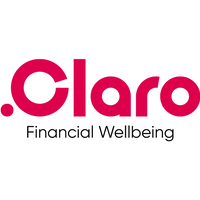What are the best – and worst – benefits for attracting talent?
The core purpose of a workplace benefits package is to attract the best new talent and retain current employees by keeping them motivated and satisfied in their roles.
But with the world changing rapidly, you want to ensure your offerings cater to the evolving wants and needs of current and future employees.
Reviewing your set of perks is a good place to start, scrapping outdated ones and replacing them with more useful offerings.
Pizza Friday
While a few slices of pizza with colleagues sounds a nice way to round off the week, this perk doesn’t rank very highly on the list of workplace benefits desired by workers.
Pizza made little or no appearance in Claro Wellbeing’s 2022 Financial Wellbeing report when it asked employees which benefits they’re most keen to have.
First on the list was financial wellbeing, followed by mental wellbeing, child support, physical wellbeing and transport-related benefits.
Particularly during the cost of living crisis, people are more concerned about paying their mortgage than having a free takeaway at work.
A financial wellbeing benefit can help improve staff finances and in turn, alleviate stress and improve mental health. There’s still room for office treats, but they shouldn’t be listed as core benefits.
Company phone
Before the days of unlimited phone data plans, workers were rightfully perturbed by the idea of footing the bill for work-related phone activity.
Whether it’s making international calls or maintaining company social media accounts outside office hours, so long as the extracurricular work is remunerated through wages, employees aren’t as stressed about the data costs incurred anymore as they’re likely to be on a plan that surpasses their needs.
A more effective workplace benefit would be to subsidise home internet costs and other household bills.
The emergence of working from home means that people are spending longer online than ever before, potentially even requiring internet access with higher speeds, as well as increased energy costs from heating and electricity use.
A survey by social enterprise Giki showed that only one in 10 UK employees have received advice or encouragement from their employer to help reduce heating bills.
For companies using a hybrid working policy, a contribution to household bills would be a strong benefit to offer current and potential staff, as it recognises a desire to ease the burden of soaring energy costs.
Table tennis
While workplace games can be a great way to facilitate colleague bonding, not everyone enjoys the competitive or physical nature of things like table tennis, table football or dart boards.
Research from payroll software provider Sage shows that only 6% of employees value games as part of the work experience.
While games can lighten the mood, they’re hard to consider as a legitimate workplace benefit. If the aim of having table tennis is to encourage physical activity, consider a gym subscription. If the aim is to boost morale, consider a way to do so that caters to all interests.
A survey or focus group is a great way to source ideas from the people that will actually use the benefits.
Irrelevant employee discounts
Offering a wide range of relevant discounts to employees can be a strong perk if it’s organised effectively. A ‘one-size-fits-all’ approach rarely works, as people tend to have different desires and habits in everyday life.
Also, the discounts need to help employees with saving money on things they regularly buy, rather than ending up spending money on things they usually wouldn’t. Giving 10% off an expensive restaurant is a nice gesture, but it’s not much of an incentive to go there or reason to regard your employer in a more positive light.
A stronger perk is giving your team access to a personal development budget. They can use that money however they want, regardless of the area of interest.
Many companies stipulate that the fund must cover something relating to their role, which can be negatively received as a blatant ploy to encourage reskilling for the benefit of the company. Strive to better the person, not the product.
Supplied by REBA Associate Member, Claro Wellbeing
A financial wellbeing benefit to support your team where it matters most








